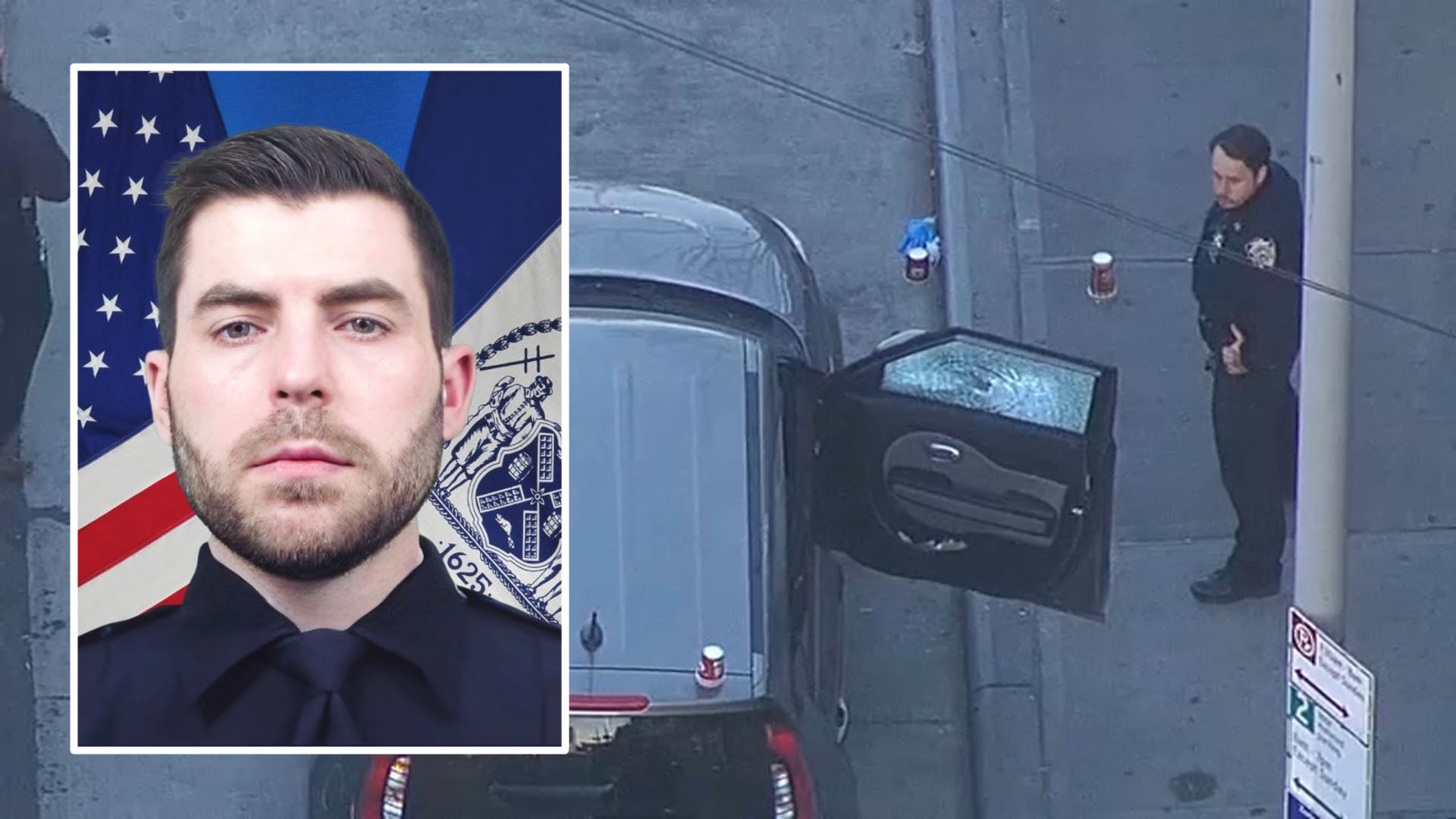What to Know
- Joe McKnight was found dead outside his car in the New Orleans suburb of Terrytown on Thursday afternoon
- McKnight was a standout running back under Pete Carroll at the University of Southern California and was drafted by the Jets in 2010
- The Jets held a moment of silence in his honor ahead of Monday night's game against the Colts
The man who allegedly shot ex-NFL player Joe McKnight to death during an apparent road rage confrontation has been arrested and jailed on a charge of manslaughter.
Jefferson Parish Sheriff Newell Normand said that 54-year-old Ronald Gasser was arrested on manslaughter charges late Monday, four days after the killing of McKnight, 28. Gasser was taken into custody after the shooting but was released from custody as what Normand called a "strategic" method of investigation.
Normand said that McKnight and Gasser began a lengthy road rage exchange that evening after McKnight cut him off on the Crescent City Connection, which links New Orleans and Jefferson Parish. The pair exchanged words while driving, Normand said, before coming to a stop at a light on Beherman Highway and Holmes Boulevard.
They continued to argue from their cars at the light, and at some point McKnight got out and leaned into Gasser's vehicle. Normand said that that's when Gasser fired three shots from his car, killing McKnight. He then got out of the car and walked around where he encountered a military officer who saw the shooting. The officer told him to put the gun in his pocket and fruitlessly administered CPR to the former Jets player.
“What we had were two adult males engaged in unacceptable behavior that did not understand conflict resolution," Normand said. "That led to tragic consequences."
When deputies arrived, the sheriff said Gasser handed them his gun and confessed to killing McKnight. It wasn't immediately clear if he had an attorney.
Normand defended releasing Gasser after the shooting on Thursday, saying that the decision allowed detectives to interview the man for more than 10 hours without an attorney present and to search his home. He also sharply criticized members of the community who were critical of the decision.
Local
"Justice has no time period," he said. "Justice is not a sprint, it is a marathon. These investigations are marathons."
Normand said Tuesday at a news conference that after releasing Gasser "for strategic reasons" they were granted permission to search the man's home and conduct several interviews with the man without an attorney present.
He added that they were able to interview dozens of witnesses, reconstruct the crime scene and canvas businesses for surveillance footage of the scene over the weekend before getting enough evidence to file for an arrest warrant.
"Witnesses were afraid to come forward," he said. "Afraid. Afraid. And I promise you if I had made an arrest Thursday night, they would not have come forward. For sure, in some cases."
Normand also said that a witness who told the Times-Picayune that McKnight was trying to apologize to Gasser when the man shot him at least once as both stood outside the car and mentioned voting for President-elect Donald Trump had lied about what she saw and changed her story three times. He said that mentioned that Gasser was "popping caps" through the windshield, but that there weren't any bullet holes in the windshield.
"It created a distraction that was the furthest from the truth," he said.
In the at-times fiery news conference, Normand chided the press and public for intimating that race played a role in the shooting -- adding that "some people wanted (the Times-Picayune witness's) story to be true." McKnight was black; Gasser is white.
"Not a single witness had said there was a single racial slur uttered," he said. "Two people engaged in bad behavior that day. Why, I don't know."
McKnight was rated the nation's No. 1 running back recruit when he came out of Louisiana in 2006 and signed with the University of Southern California. He was a fourth-round draft pick of the Jets in 2010 and played three seasons for New York. He spent a season with Kansas City, and most recently played for the Saskatchewan Roughriders of the Canadian Football League.
McKnight had a 107-yard kickoff return for a touchdown in 2011, and it remains the longest play in Jets history.
The Jets held a moment of silence in his honor ahead of Monday night's game against the Colts.



